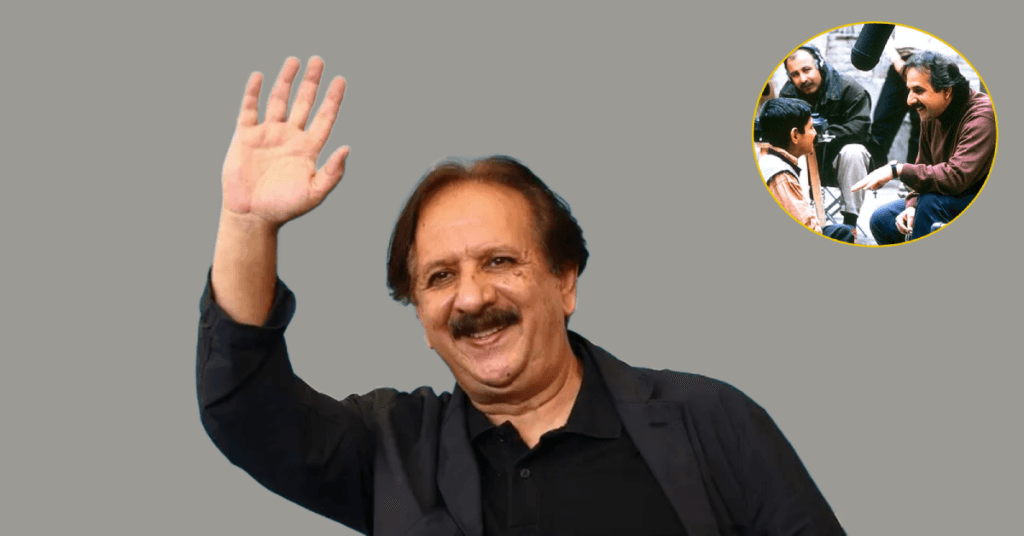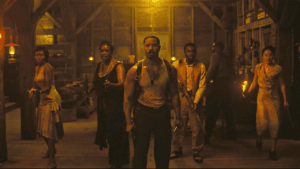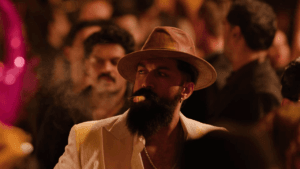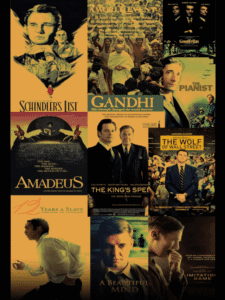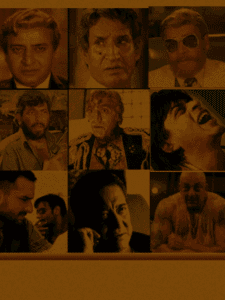In the world of cinema, where freedom is often equated with creativity, Iranian filmmaker Majid Majidi stands as a quiet but powerful exception. His body of work is a testament to the idea that profound beauty can emerge from constraint, that the absence of certain liberties can give rise to a unique cinematic language. Over the decades, Majidi has carved out a space for himself as a master storyteller, one who speaks to the soul—often without raising his voice.
This article traces Majidi’s remarkable journey—from the streets of Tehran to global film festivals—and explores how he transformed the artistic and cultural restrictions of his homeland into poetic, emotionally resonant cinema.
The Stage
Majidi was born in 1959 in Tehran, Iran, in a middle-class family. His creative journey began not behind the camera, but on stage. He studied at the Institute of Dramatic Arts in Tehran and began his career as an actor, appearing in films and theatre productions in the post-revolution Iran of the 1980s. This acting background deeply informed his directing style, particularly his sensitivity to performance and human emotion.
However, it wasn’t long before Majidi discovered his true calling—telling stories from behind the camera. His early exposure to Iran’s socio-political climate, its unspoken cultural codes, and its human intricacies laid the foundation for the kind of intimate, morally complex films he would go on to make.
Children of Heaven
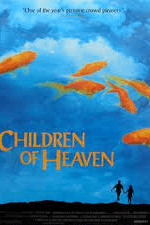 Majidi’s international breakthrough came in 1997 with the deeply affecting film “Children of Heaven” (Bacheha-ye Aseman). The story revolves around a brother and sister in a poor Tehran neighbourhood who share a single pair of shoes. On the surface, it’s a simple tale, but under Majidi’s direction, it unfolds with emotional depth and symbolic richness.
Majidi’s international breakthrough came in 1997 with the deeply affecting film “Children of Heaven” (Bacheha-ye Aseman). The story revolves around a brother and sister in a poor Tehran neighbourhood who share a single pair of shoes. On the surface, it’s a simple tale, but under Majidi’s direction, it unfolds with emotional depth and symbolic richness.
Made on a modest budget, the film was Iran’s first ever nominee for the Academy Award for Best Foreign Language Film. It captured audiences worldwide, not through spectacle, but through its humanism. Majidi focused on the small but profound struggles of everyday people—particularly children—imbuing their experiences with grace and quiet dignity.
“Children of Heaven” was not just a success; it was a mission statement. It introduced the world to Majidi’s signature style: minimalist but emotionally loaded, spiritual but grounded, deeply Iranian but universally relatable.
Majid Majidi and The Art of Suggestion
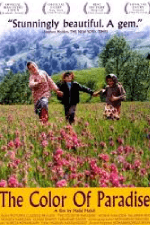 Filmmaking in Iran comes with a unique set of challenges. The state censors impose strict rules on what can and cannot be shown: physical contact between men and women, political critique, and portrayals of certain behaviours are heavily restricted or outright banned.
Filmmaking in Iran comes with a unique set of challenges. The state censors impose strict rules on what can and cannot be shown: physical contact between men and women, political critique, and portrayals of certain behaviours are heavily restricted or outright banned.
For many, these might seem like insurmountable obstacles—but for Majidi, they became catalysts for invention.
Instead of avoiding emotion, he found innovative ways to suggest it: a lingering gaze instead of a kiss, a gesture instead of confrontation, silence instead of exposition. His films are rich with subtext and metaphor, and he uses everyday imagery—water, wind, nature, children—to express themes of love, loss, and longing.
In “The Color of Paradise” (1999), Majidi tells the story of a blind boy and his troubled relationship with his father. Without resorting to melodrama, the film explores abandonment, acceptance, and spiritual awakening. The natural world becomes a kind of silent narrator, reflecting the boy’s emotional landscape.
These films don’t just abide by restrictions—they thrive within them. Majidi turns censorship into a discipline, using limitation to sharpen his focus and deepen his storytelling.
Children, Spirituality, and Human Dignity
One of Majidi’s most consistent storytelling choices is his use of children as protagonists. Children are often seen as a neutral space in Iranian cinema—free from the complications of adult politics, gender dynamics, or overt rebellion. But Majidi uses this neutrality to tell profoundly subversive stories.
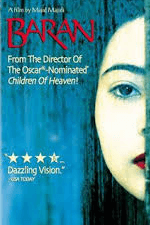 In “Baran” (2001), a teenage Iranian boy working on a construction site falls in love with an Afghan refugee girl disguised as a boy. The love remains unspoken—no touch, no confession—yet its emotional weight is undeniable. The film is a delicate meditation on empathy, sacrifice, and invisible lives.
In “Baran” (2001), a teenage Iranian boy working on a construction site falls in love with an Afghan refugee girl disguised as a boy. The love remains unspoken—no touch, no confession—yet its emotional weight is undeniable. The film is a delicate meditation on empathy, sacrifice, and invisible lives.
Majidi’s films also lean heavily into spirituality, not in a religious sense, but as an exploration of morality, grace, and inner peace. “The Song of Sparrows” (2008) follows an ostrich caretaker who loses his job and becomes a motorcycle courier in Tehran. What begins as a story about economic hardship slowly transforms into a parable about integrity and redemption.
Through all his films, Majidi celebrates human dignity, especially among the marginalized: the poor, the disabled, the immigrant, the abandoned. His lens doesn’t pity them—it honours them.
Language of Compassion
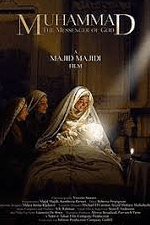 Majidi’s work has been celebrated across the globe. His films have screened at Cannes, Berlin, Toronto, and countless other prestigious festivals. He has received accolades from Asia to Europe to North America, including the Grand Prix of the Americas at the Montreal World Film Festival and the Peace Film Award at the Berlin International Film Festival.
Majidi’s work has been celebrated across the globe. His films have screened at Cannes, Berlin, Toronto, and countless other prestigious festivals. He has received accolades from Asia to Europe to North America, including the Grand Prix of the Americas at the Montreal World Film Festival and the Peace Film Award at the Berlin International Film Festival.
In 2015, he made his most ambitious and controversial film yet: “Muhammad: The Messenger of God”, a large-scale historical epic that dramatizes the Prophet Muhammad’s early life. It was Iran’s most expensive film ever made, and it marked a departure in both scale and style. Though it faced political backlash and bans in some countries, the film also demonstrated Majidi’s ability to operate on a grand cinematic scale without losing his human touch.
He has also mentored and collaborated with filmmakers across the region and served as a juror at major film festivals. Despite his fame, he remains committed to the language of compassion, not the spotlight.
The Poetry of Restraint
What makes Majidi truly special is not just what he shows, but what he chooses not to show. In a global industry often obsessed with pushing boundaries, Majidi instead explores the richness that lies within them. His films are slow-burning, contemplative, and emotionally intricate—qualities that are increasingly rare in mainstream cinema.
Majidi’s cinema asks viewers to observe closely, to listen deeply, and to feel quietly. He reminds us that storytelling is not about how much you can say, but how much you can evoke.
In a world of noise, his films are whispers that echo.
Majid Majidi: The Alchemist
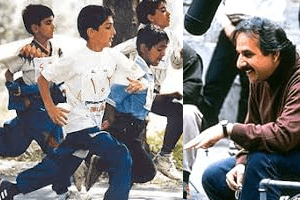
Majid Majidi’s career is not just a cinematic success story—it’s a creative philosophy. He shows us that limitations can be liberating, that restraint can heighten emotion, and that art can bloom even in the most controlled environments.
He has turned Iran’s restrictive film policies into a framework for emotional and spiritual storytelling that resonates far beyond borders. His lens has given voice to those who often go unheard, and his stories have restored a sense of grace to a chaotic world.
In a time when so many artists equate freedom with provocation, Majidi stands as a powerful reminder that true power lies in depth, not noise. His journey is not just a lesson in filmmaking—it’s a masterclass in creative alchemy.
More Articles for You:
- The Role of Women in Filmmaking
- 5 Hindi Movies of 2024 That Prove Small Budgets Can Create Big Impact
- The Psychology Behind Iconic Villains: Why We Love to Hate Them


